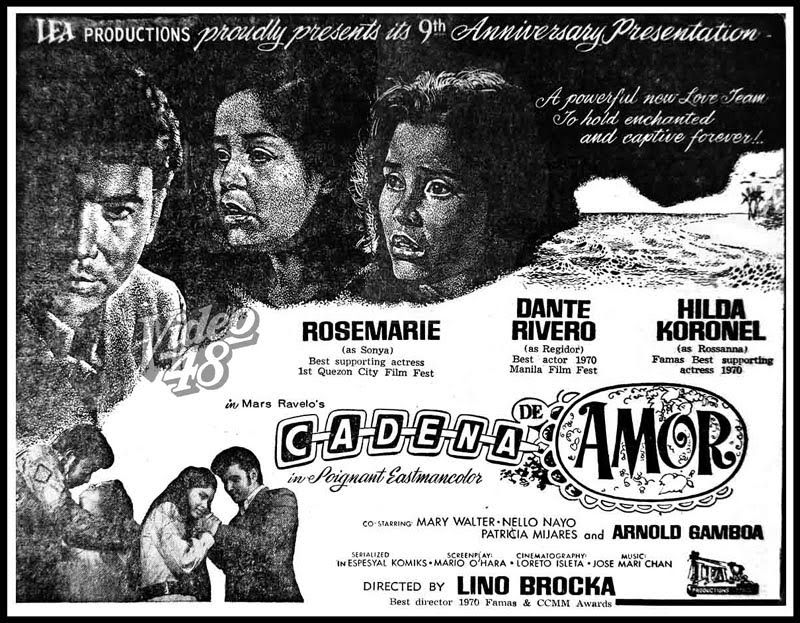Composing for the Screen: Jose Mari Chan Tells the Story (Part 6 of 6)
- May 10, 2017
- 4 min read

Imagine movies without any soundtracks. Imagine them without their catchy theme songs – theme songs that help you remember the movies even as years pass. Imagine them without the compelling background scores that cause you tear up as two lovers destined for each other finally get together, or make you cover your eyes as the main character searches inside the creepy house.
Songs give films their identity. They set the mood by heightening emotions However, movie scoring and soundtracks are often overlooked by the average moviegoer. And this is understandable. After all, an effective film scoring finds the perfect balance between eliciting the necessary feelings from the viewers while not taking any attention away from the characters and the plot.
I recently had the privilege of interviewing Jose Mari Chan, renowned Filipino singer-songwriter and film composer. He shared the challenges that come with film scoring especially back in the day, and as well as the importance of movie scores and soundtracks.
Chan has always had the love and talent for music even at an early age. It came naturally for him, he recalled. Even though he eventually took up Bachelor of Arts in Economics in Ateneo de Manila University for college, his passion for music never dwindled. “Since music has always been in my blood, in my vein, in my mind, and in my heart since I was a little boy, it was very difficult to take it away from me.” During his college years, he continued playing music and writing songs. He was even part of a band.
He eventually launched his musical career as a singer-songwriter, first appearing in the TV show “9 Teeners of ABS-CBN” as a host and singer. Not long after, he released his first single, “Afterglow” and his first album, “Deep in my Heart.” He would continue writing more songs and releasing more albums.

His early songs and recordings caught the attention of film director Lino Brocka. Brocka thought that Chan would be able to write songs that would effectively convey the theme of his films, and so he approached him. They collaborated on films such as Stardoom and Cadena de Amor, some of the first films composed for by Chan. Brocka introduced Chan to the world of film scoring, which would then lead to him scoring for over 20 films, working with directors such as Nelson Torre and Celso Ad Castillo.
Chan described film scoring as something completely different from composing love songs, which is what he is accustomed to. Pop and love songs can be easily patterned after what is contemporary. Movie scoring, on the other hand, needs a more dramatic factor. It is also more time-consuming. When scoring for movies, Chan recalls needing to first familiarize himself with the story and the development of the characters. Afterwards, he would compose the melody that will suit the story and the characters. Then, he would proceed with composing the theme song. This was his personal favorite part, as it was easy for him. He would then choose the right singer to interpret the song before finally selecting a small orchestra to record the soundtrack.

Composing for the screen brought about its fair share of challenges for songwriters like Chan. Back in the day, the budget for film scoring was quite small, so film scorers like him had to make do with what they had. They could not employ full orchestras to play the music they envisioned. Most of the film’s budget naturally went to the actors because they were the ones who drew the crowd. Movie companies were also not very profitable during those days. Chan recalled that in an effort to save money, some companies would even use existing soundtracks from foreign films as background to their movies. They would just opt to hire composers for the theme songs only. Film scoring was not the priority.

Despite this, Chan continued to score for movies such as Crush Ko si Sir, A Woman is a Woman, Tararajing Pot Pot, and his favorite, Ang Gangster at ang Birhen. He believes that music is key to telling a good story because it enhances it. For him, music possesses the magic of highlighting the essential elements and emotions of a movie.
For up-and-coming songwriters, Chan advises honing their natural talents. Composing songs would then come easily. Gathering ideas from the songs they are exposed to will be of major help as well.
Bringing these compositions to the screen, radio, and record producers, however, is a whole other story according to Chan. The times now are different. People no longer purchase CDs because music is easily downloadable. The business side of music is much more difficult nowadays.
Chan mentioned that songwriters today have lesser incentive to do what they love, even though this is a necessity for one to live. Having no motivation dampens the enthusiasm and creativity of songwriters. So, he advises budding songwriters that if they have the gift, they should not stop. “Do not let these economic things discourage you because God has given you the talent. Not everyone has that gift, so you must make use of it.”
He encourages them to find a stable career, but continue doing music on the side. If they hone their gift and compile their songs, there would come a day when someone would need their music, just as Lino Brocka needed his. Once this happens, they will earn from their music and eventually make it their legacy.
Movie posters taken from the Internet Movie Database website


Comments